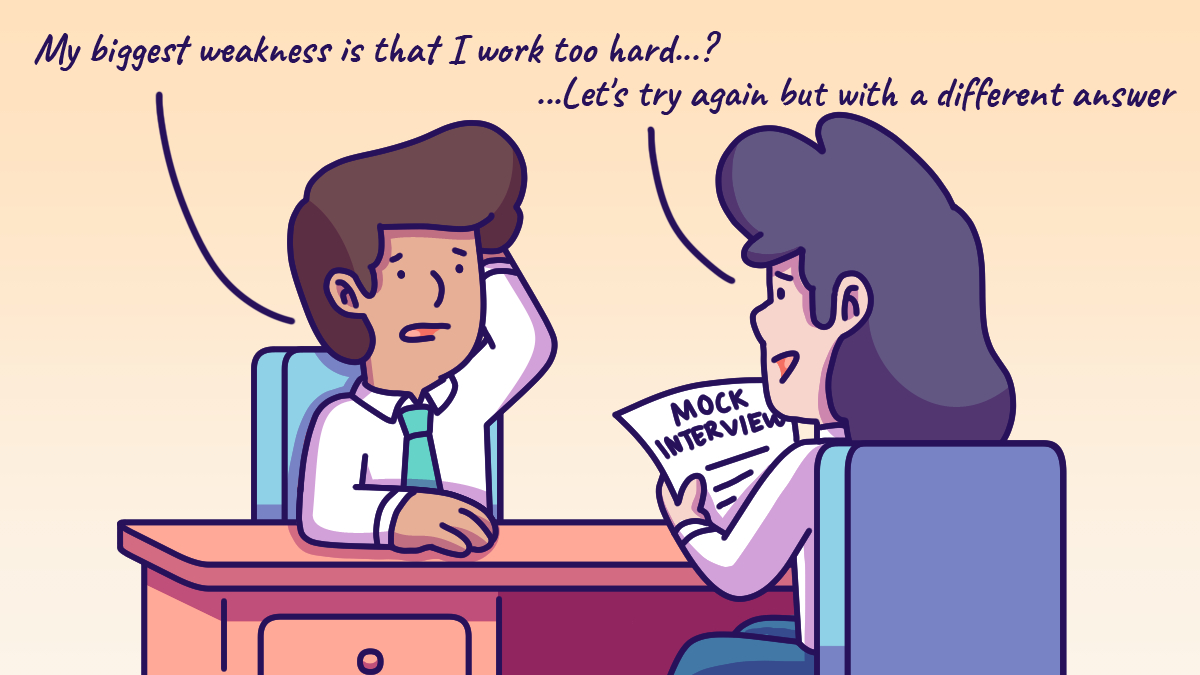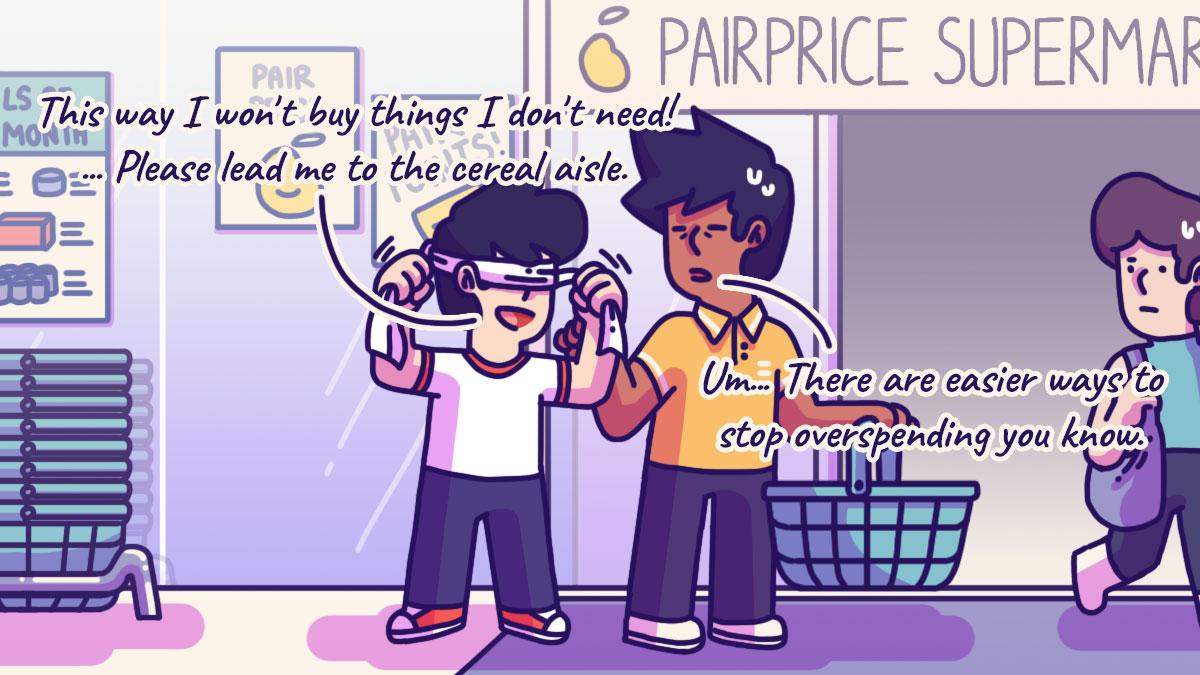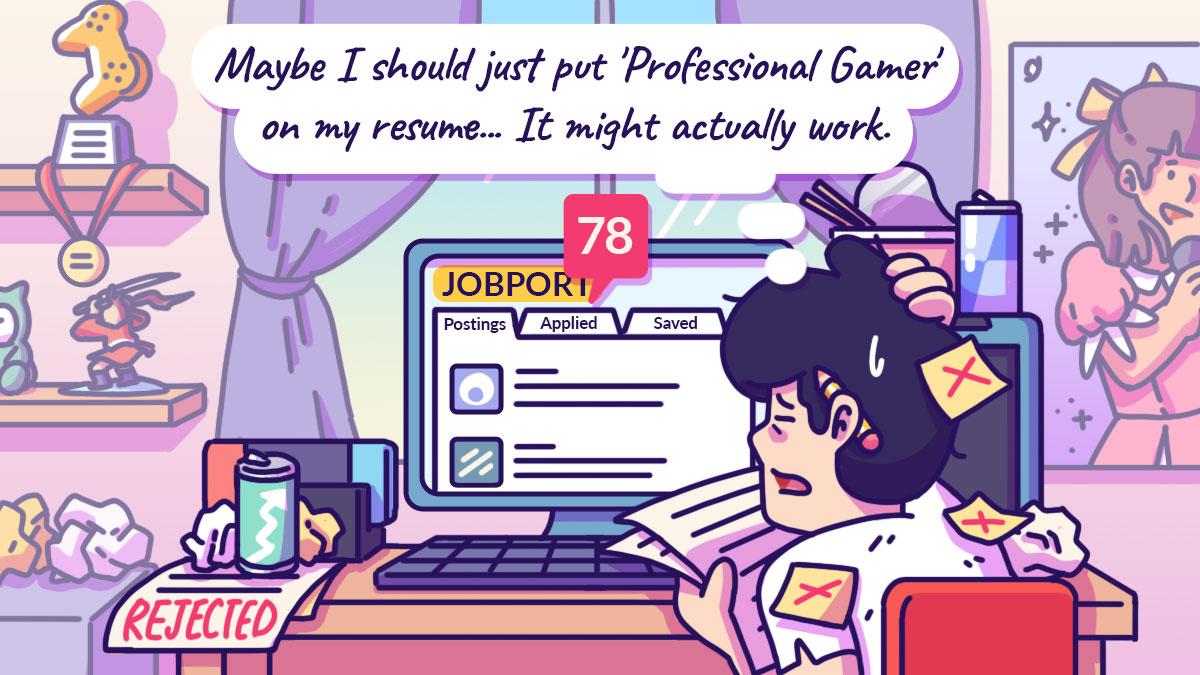Common challenges for job seekers
There are two common challenges that Pui Chun has observed among her clients. The first is approaching resumes with a one-size-fits-all mentality and not realising that “there is a need to customise their resume to match each job description”. After helping her clients to match up their resumes and the job description of the position they’re applying for, Pui Chun says that she has clients “coming back excitedly saying that they are now getting some interviews from the applications”. The other challenge that most of her clients face is being unable to pass the interview phase. But thankfully there’s a simple solution – conducting mock interviews. Pui Chun says: “We can help identify what could be potential barriers resulting in them not getting the offer even after attending the interviews. We also provide tips on how to answer frequently asked questions.
“Clients who are older may find this more challenging, some could have been in the role for a long time and have not gone for an interview for many years. They shared with us that the mock interview helped them in approaching their upcoming interview, in terms of how to answer the questions, grooming tips or how to manage a virtual or physical interview.”
Some of the common mistakes candidates tend to make include not answering the interview questions in a relevant manner, not answering in the right tone, not having the right attitude, not practising enough and not doing research before attending the interview, shares Pui Chun.
“I can’t say enough about the need to keep practising before going for an interview. During my mock interview with members, some appear to be very confident but once I start asking them questions, it is very obvious that they are not prepared at all and you can see them fumbling through the session.”
As for the frequently asked questions, these are what you should be prepared for:
Pui Chun says: “We can help identify what could be potential barriers resulting in them not getting the offer even after attending the interviews. We also provide tips on how to answer frequently asked questions.
“Clients who are older may find this more challenging, some could have been in the role for a long time and have not gone for an interview for many years. They shared with us that the mock interview helped them in approaching their upcoming interview, in terms of how to answer the questions, grooming tips or how to manage a virtual or physical interview.”
Some of the common mistakes candidates tend to make include not answering the interview questions in a relevant manner, not answering in the right tone, not having the right attitude, not practising enough and not doing research before attending the interview, shares Pui Chun.
“I can’t say enough about the need to keep practising before going for an interview. During my mock interview with members, some appear to be very confident but once I start asking them questions, it is very obvious that they are not prepared at all and you can see them fumbling through the session.”
As for the frequently asked questions, these are what you should be prepared for:
- Tell me about yourself?
- What do you know about the company?
- What are your strengths?
- What are your weaknesses?
- What are your salary expectations?
Should I do a mid-career switch?
It depends, says Pui Chun, who pointed out that for certain industries, “there may be a need to change as the demand is no longer there and job opportunities are minimal”. She added: “Having said this, it is also possible to change industry while doing the same job function. For example, an accountant working in a company dealing with the wholesale of fax machines may switch to healthcare industry to continue being an accountant.” There are two difficulties that people face when doing a mid-career switch. The first is the ability to secure a new role. Doing this may require skills that you may not yet possess or even if you do have them, employees might want someone with experience. If you encounter similar challenges, Pui Chun suggests getting on-the-job experience to beef up your profile. “You could offer your services on freelancing job portals or do a project for someone… It is also time to start networking with people, especially those in the industry or roles that you are keen to take up. Attend events and start to add people in the same group through your LinkedIn profile,” she advises. You can also taking on courses to gain skills that would be useful for the industry or role you hope to transition into. “Adding such skills can increase your chances of being shortlisted. It also shows the employer that you are serious about the career switch as you have spent time and effort to attend courses to make this move,” adds Pui Chun.The second is managing your own expectations for the new role. “You may not be able to assume similar role (in terms of seniority). There may be a need for you to start from ground zero, like a fresh graduate, as you do not have the experience. “With this, it means that salary may also be adjusted. You may have to adjust your lifestyle in the early years. If you have a family, this is something that I usually will highlight to my client to discuss with their family members as I feel that there will be an impact to them as well.” If you’re thinking about doing a mid-career switch, though, here are some questions that Pui Chun recommends thinking about:- Does the job functions match my career interest?
- Am I prepared to take on a slightly junior role?
- Am I prepared for a salary cut?
- Is my family supportive of this move?
- Have I done research or speak to someone in this field to understand more about the role?
- What are the pre-requisites and do I have them now?
- If I do not have the pre-requisites, what are the options available for me to achieve them?
Go for a job that matches your career interests and career values
When job hunting, it’s easy to get caught up in wanting to secure a job and doing what it takes, whether it’s tweaking your email or trying to ace your interview. And sometimes this includes going for jobs that other people think we should have, instead of jobs that we want to do. Pui Chun shares: “I have encountered one or two fresh grads or early career PMEs coming to us for job search assistance. When I asked what kind of roles they are looking for and why they want to take up this role, they actually shared that their parents told them to or their auntie said that it would be good for them. “I was quite shocked that they made career decisions based on other people's comments and decision and not their own.” It’s also not wise to simply switch roles or industries simply because there is perceived demand as this is not sustainable if you don’t have any interest in the role. The other scenario, is people deciding to switch to a certain role or industry because they feel that the demand is there. The most important thing, she advises, is to “do something you enjoy doing to remain motivated at work” to avoid getting burnt out. “If I feel that the client is unsure of their career direction, I may ask them to do a career interest and career values test to have a better understanding of themselves before deciding their next job,” says Pui Chun, adding, “Sometimes, I feel that it's just at that moment that they seem to be interested in a specific role, maybe due to peer influence… I feel that through speaking with a career coach on the plan for a career switch, it would make them think deeper, reflect, do more research and eventually have better clarity whether the switch is indeed suitable for them.” If you’re someone who is in need of some career guidance, here are some tips from Pui Chun:- Don’t be afraid to reach out and speak to someone. There may be new ideas, new approaches on what you can do in your job search journey through the interaction with a career coach. And be open to comments and feedback.
- Treat looking for a job as your job. This means that you need to put in the effort in looking for a job and doing things such as keeping a lookout for roles that suits you, customising your resume to the job description to have a high match rate, practising your interview skills, and doing research on the company that you are going for the interview. Don’t take a mass-send approach without any direction.
- Continue to upgrade yourself by going for courses that can value add to your new role even as you do your job search.











